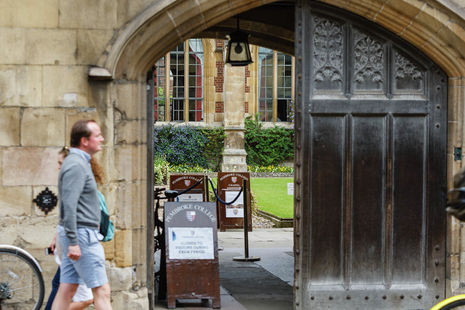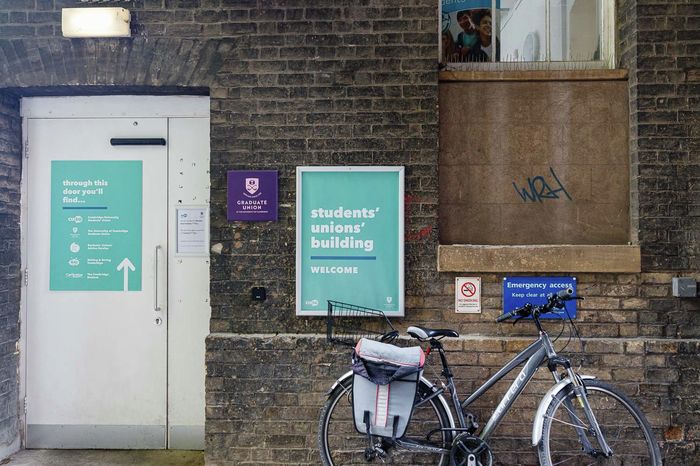Demands for no ‘Covid-19 rent hike’ yet colleges insist no plans for pandemic-related increases
A letter sent to the University and colleges demands no “unjust and unfair” rent increases, yet data gathered by Varsity found that many college rent increases were decided prior to the Covid-19 pandemic

In an open letter launched by CUSU yesterday (09/07), college student unions called for colleges to not introduce rent increases “as a result of the COVID-19 pandemic.”
The letter, which is addressed to all Heads of Houses, Bursars and the Vice-Chancellor, asks that the “University and Colleges work together to ensure that students are not made to shoulder the cost of the current crisis.”
The letter, which had been signed by 24 student committees by Friday evening, recognises the “difficult financial situation” facing many colleges but stresses that “students should not have to pay more in rent because of Covid-19.”
This follows months of college’s experiencing financial losses from not charging rent to students who were not in residence during Easter term and losses from conferences and dining. In a joint statement to Varsity in April, the colleges predicted an income loss of £60 million due to Covid-19.
The letter highlights that the “predicted £60 million loss forecast by Colleges represents less than 1% of the Colleges total net assets as of 2019” and contends that “shifting the financial burden from Colleges’ loss of income onto students who are also bearing the social and academic costs of the pandemic shows a lack of compassion for the students they exist to support.”
“Unfair and unjust” rent hikes, the letter stresses, will “make Cambridge a less accessible and less welcoming place.”
However, enquiries and Freedom of information (FOI) requests by Varsity found that most colleges had decided rent increases for the next academic year prior to the pandemic.
All 17 colleges which respond to Varsity’s enquiry– Churchill, Clare Hall, Corpus Christi, Downing, Fitzwilliam, Gonville and Caius, Homerton, Jesus, Murray Edwards, Newnham, Pembroke, Peterhouse, St Catharine’s, St John’s, Selwyn, Trinity Hall and Wolfson – explained that they had no intentions to increase rents to try to recuperate losses from Covid-19 and rent rates were not influenced by the impacts of the pandemic on college finances.
All colleges who responded to Varsity’s enquiries consulted students in some manner in regard to rent increases. For example, the 1.75% rate rise for Jesus College students was decided in conjecture with consultations with the JCR and MCR, and a paper on students rents presented to the College Council was jointly signed by the MCR and JCR presidents and the Bursar. While Trinity Hall’s 3.2% rent increase operates as part of their three-year rent agreement, which was agreed following student consultation in 2017.
Varsity’s FOIs found that, of the colleges which responded, rents are to increase next year at rates between 1.4% and 7%.
Stella Swain, outgoing CUSU/GU Welfare and Rights Officer, recognised that “not all colleges are increasing their rent” but that the letter “was motivated by a desire to stand with those students at Colleges where rent is being increased.”
Swain is concerned to see colleges using the “pandemic as an excuse to raise rents for students” especially as rents across colleges are “already uneven, with many students suffering because they can’t afford the extortionate rents at their College.”
She described how the “letter came out of several meetings with J/MCR representatives where concerns were raised” by students “about new increases beyond what had already been agreed.” Swain highlighted Pembroke and St Catharine’s, “which both initially proposed a 10% rent increase.”
The St Catharine’s Bursar told Varsity that rents will not be increased as a result of the Covid-19 pandemic and negotiations on rent increases should conclude by the end of July.
Pembroke explained that their 7% rent rise was unrelated to Covid-19. Pembroke has a “long term agreed policy of setting rents at around the 75th percentile of colleges”, meaning that Pembroke rents are cheaper than around 23 other colleges but more expensive than a quarter of all colleges.
The 7% increase in rent was explained as a “catch up” because the College is “trying to set above-average rises” to reach their target over the next few years.
In response to Varsity’s inquiry, Pembroke stressed that they would have given “the same answer for at least the last five years” because they “have been trying to catch up for a long time.” Average rent rises for Pembroke students over the last five years, including for the 2020-21 academic year, is 5.52%. Although the 7% rent rise is the highest increase for Pembroke students for at least a decade.
Of the 17 colleges to reply to Varsity’s enquiry 9 had rent increases at or below 2.5% and 11 had rent increases at or below 3%, excluding St Catharine’s which has not yet set its rent for the next academic year.
Most of the colleges decided their rent increases for the next year between January and March, before the severity of the pandemic was realised.
St Johns, Pembroke and Churchill were the only colleges to have rent hikes above 4%. However, in Varsity’s 2018 investigation into college rents, these three colleges were listed alongside Homerton and Wolfson as having the cheapest average weekly rents.
Pre-existing rent disparities mean that a higher percentage of rent increase for a particular college in the next academic year does not ensure that the college has a higher average rent increase in real terms. Pembroke, for example, predicts that it will continue to charge among the lowest rent in terms of actual rent increase, despite having a higher percentage rent increase compared to the other colleges which have provided data.
Rent disparities between colleges have been regularly highlighted in Cambridge in recent years, with a number of colleges introducing Cut the Rent campaigns calling for improved conditions and reduced rent costs.
A 2018 Varsity investigation found a 67% gap between Homerton, the college with the cheapest average weekly cost, and Newnham, which was found to be the most expensive college. While Homerton undergraduates paid 27% less than the £146.98 overall average cost of renting in Cambridge, Newnham students paid 21% more than the average.
Only 2% of Newnham students felt their rent prices were fair, according to the 2018 Big Cambridge Survey.
 News / Judge Business School advisor resigns over Epstein and Andrew links18 February 2026
News / Judge Business School advisor resigns over Epstein and Andrew links18 February 2026 News / Gov grants £36m to Cambridge supercomputer17 February 2026
News / Gov grants £36m to Cambridge supercomputer17 February 2026 News / CUCA members attend Reform rally in London20 February 2026
News / CUCA members attend Reform rally in London20 February 2026 News / Union speakers condemn ‘hateful’ Katie Hopkins speech14 February 2026
News / Union speakers condemn ‘hateful’ Katie Hopkins speech14 February 2026 News / Hundreds of Cambridge academics demand vote on fate of vet course20 February 2026
News / Hundreds of Cambridge academics demand vote on fate of vet course20 February 2026











